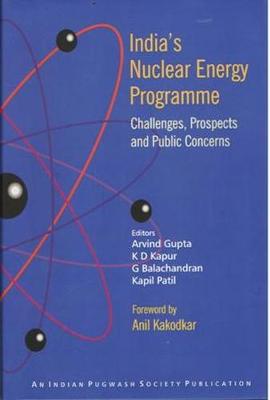In the wake of fukushima nuclear accident in Japan, nuclear industry worldwide is facing two major challenges; first, the public concern over safely of nuclear power plants and second, the relationship between the nuclear industry and public regulators. Similar concern have been raised in India too. The persistence of public concerns over nuclear safety, in long run, could pose a serious challenge to India's civilian nuclear energy programme. The book analyses the prospects for nuclear energy globally in the aftermath of Fukushima nuclear crisis and evaluates its role in India's energy mix. In the light of various public concerns, the book evaluates the overall performance of India's nuclear plants in terms of safety, impacts on environment and public health, nuclear emergency preparedness and civil nuclear liability. The public concerns against nuclear power in India are mainly related to the impact on environment and public health. The books show that the operation of nuclear power plants in last for decades did not pose any significant risks to environment and public health. India's nuclear power plants includes various advance safety features to withstand certain external events and the additional safety measures have been implemented as per the Atomic Energy Regulatory Board's (AERB) safety reviews conducted after the Fukushima crisis. The operation of nuclear power plants over the years did not increase the levels of environmental radioactivity from the pre-operational levels. Also there are no discernible impacts on public health. However, given the public concerns over environmental and public health related issues., the book recommends that India's nuclear energy managers must address such concern through constructive public engagement and dialogue.
- ISBN13 9788182747814
- Publish Date December 2014
- Publish Status Active
- Publish Country IN
- Imprint Pentagon Press
- Format Hardcover
- Pages 280
- Language English
